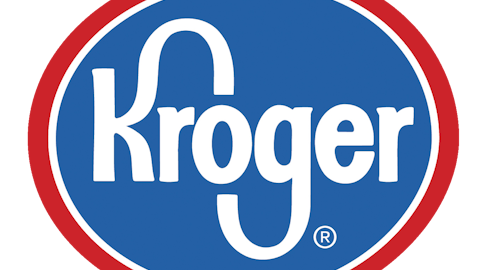Call me crazy, but I love reading Form 10-Ks, which most publicly traded companies are required by law to file every year with the SEC to provide a comprehensive summary of their businesses.
More specifically, I enjoy looking through the “Risk Factors” section which — just like it sounds — contains a list of the most significant risks facing the company that filed the form. You know… all those scary things management generally wouldn’t want to publish in a press release. But don’t get me wrong; even though a company might represent a generally solid investment, it’s still a great idea to familiarize yourself with its respective risk factors to make a well-informed investment decision.
Take Whole Foods Market, Inc. (NASDAQ:WFM), for example, whose most recent 10-K lists a whopping 25 risks associated with the business.

Source: Whole Foods.
Of course, Whole Foods Market, Inc. (NASDAQ:WFM) stock also happens to be one of the latest additions to my personal portfolio and, while I’ve had no problems extolling the virtues of this remarkable company, I’m well aware it’s far from bulletproof. With that said, here are three of the most significant risks that owners of Whole Foods stock should always keep in mind:
1. “Adverse publicity may reduce our brand value and negatively impact our business.”
Curiously enough, we got a taste of this one just last week after Whole Foods Market, Inc. (NASDAQ:WFM) was compelled to revise a long-standing “English-only” stance outlined in its employee handbook.
After considering the details and context of the situation along with Whole Foods Market, Inc. (NASDAQ:WFM)’ response, however, I thought, at the time, the company deserved the benefit of the doubt — especially when we note its track record of supporting diversity, and its habit of making perennial appearances on Fortune magazine’s “100 Best Companies to Work For” list.
Even so, that track record is both a blessing and a curse for Whole Foods Market, Inc. (NASDAQ:WFM), because consumers and investors alike continue to support the company (at least in part, anyway) for that very reason. As a result, if Whole Foods doesn’t adequately manage its image through adverse publicity, Whole Foods stock price could suffer in the fallout.
Next,it’s important to know that, of Whole Foods’ 349 total locations at the end of last quarter, eight are located in Canada, seven are in the United Kingdom, and the remaining 334 stores are spread across 40 states in the U.S.
Needless to say, then, Whole Foods’ higher-priced grocery business overwhelmingly benefits when the domestic economy supports healthier levels of consumer spending. If (read “when”) U.S. economic conditions eventually take a turn for the worst going forward, it’s a safe bet Whole Foods stock could plunge, as fickle shoppers turn to the cheaper competition.
Then again, that’s also why Whole Foods management told investors earlier this year that margins may come under pressure going forward as the company works to increase their competitive position by placing more focus on lower-priced, value-oriented items.
And that leads me to the third risk…
3. “Increased competition may adversely affect our revenues and profitability.”
It’s no mystery that Whole Foods is up against fierce competition in the grocery biz.
First, it must compete with other up-and-coming organic grocers like The Fresh Market Inc (NASDAQ:TFM), which celebrated its IPO in late 2010. Shares of The Fresh Market Inc (NASDAQ:TFM) recently rose 8% after the company beat analysts’ expectations during its most recent quarter. When all was said and done last quarter, The Fresh Market managed to grow its earnings per diluted share by a respectable 14.6%, while increasing its revenue 12.9%, to more than $366 million.
By way of comparison, however, Whole Foods stock seems relatively safe so far; Whole Foods’ last quarter grew its much larger revenue base by 13% year over year, to $3.03 billion. Better yet, Whole Foods’ own diluted earnings per share increased an even more impressive 19% over the same period.
That said, Whole Foods must also compete with grocery giants like Wal-Mart Stores, Inc. (NYSE:WMT), which recently upped the ante with its new fresh produce initiative. That initiative, in part, involves plans for purchasing produce directly from growers, with the guidance of new produce experts hired by the grocery behemoth. Incidentally, that’s somewhat similar to the way Whole Foods strives to buy produce directly from local organic farmers — albeit Wal-Mart Stores, Inc. (NYSE:WMT) must do so on a much larger scale with its more than 3,400 locations that sell produce.
In addition, Wal-Mart will be performing independent weekly checks on all of those locations, and is launching “Fresh Produce Schools” and expanded training programs to more effectively educate the 70,000 employees involved in handling the products.
As I suggested earlier this month, however, I still think Wal-Mart’s efforts in the near-term are more likely to harm more traditional large-scale grocers like Safeway Inc. (NYSE:SWY) and The Kroger Co. (NYSE:KR), which compete more closely with Wal-Mart’s economies of scale and preferred customer-base.
Foolish takeaway
In the end, Whole Foods, so far, has done an admirable job in managing these risks while profitably growing its business. In doing so, Whole Foods stock has helped early investors return more than 30 times their money over the past 20 years.
That doesn’t mean, however, that there still aren’t gains to be had. After all, when we remember that Whole Foods’ management eventually hopes to gradually triple their number of stores in the U.S. to at least 1,000, I still think Whole Foods stock should continue to provide excellent returns for patient investors over the long haul.
The article 3 Risks Facing Whole Foods Stock originally appeared on Fool.com and is written by Steve Symington.
Fool contributor Steve Symington owns shares of Whole Foods Market. The Motley Fool recommends The Fresh Market and Whole Foods Market. The Motley Fool owns shares of Whole Foods Market.
Copyright © 1995 – 2013 The Motley Fool, LLC. All rights reserved. The Motley Fool has a disclosure policy.




